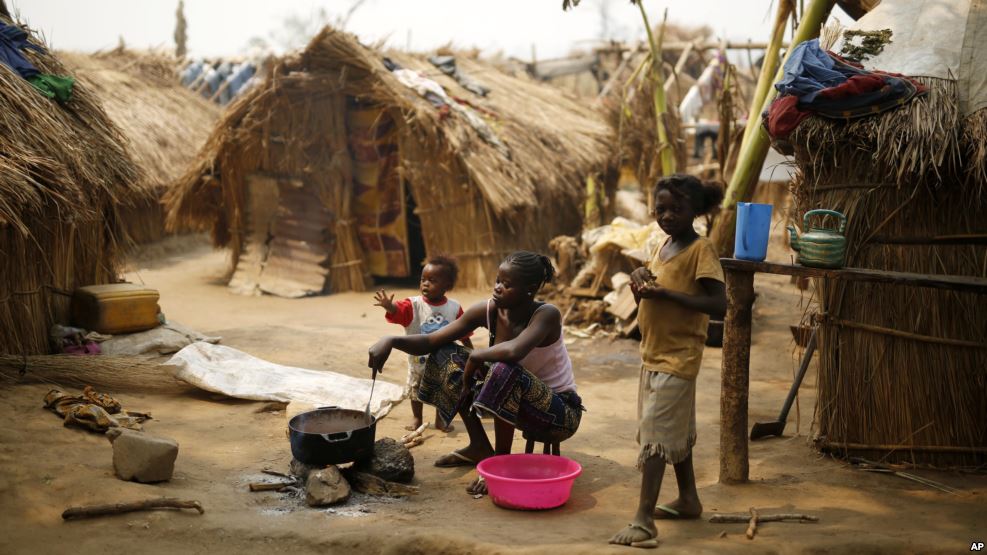UN Officials: Situation in CAR Can Be Turned Around With Sustained Aid

While expressing optimism that the Central African Republic will become a stable, peaceful country, U.N. aid officials have acknowledged that the mission ahead would be a challenge and achieving the goal would require the sustained support of the international community — something that has been in short supply for some time.
“We are really here to appeal among member states for greater attention and greater support for a humanitarian emergency that is largely forgotten, or at least, overshadowed by other more mediatic [in the media] crises,” said Fabrizio Hochschild, the United Nations humanitarian coordinator in the CAR.
Hochschild was part of a U.N.-CAR delegation that met with donor countries to appeal for nearly $400 million to meet the needs of 1.6 million people in the country over the coming year
“The Republic of Central Africa is among the most poor, most forgotten, neglected places on this planet, and that chronic poverty and obscurity have been compounded by ongoing conflict,” he said.
The Central African Republic has been lurching from crisis to crisis over the past two decades. In the last three months, six localized conflicts have erupted, leading to hundreds of deaths and the displacement of tens of thousands of people.
In a statement late Monday U.N. Secretary General Ban Ki-moon said he is deeply concerned about renewed violence last week in the C.A.R. Two factions of the ex-Seleka clashed in Bria, Haute Kotto prefecture, killing and wounding dozens and displacing more than 11,000 people, mostly civilians. He said many of the victims appear to have been targeted based on their ethnicity.
Sporadic outbursts such as these over the past 20 years have contributed to making CAR one of the poorest countries in the world, with socioeconomic statistics that rank near the bottom of every international study.
For example, United Nations data show one in five children will die before the age of 5, one in every 10 women will die in childbirth, and close to half of all children who reach adulthood will suffer from chronic malnutrition — a malady that will have long-term physical and mental health consequences.
The United Nations reports annual per capita income stands at $325, with nearly half of the population of 4.6 million short of food and in need of humanitarian assistance.
Despite these and other dire statistics, Hochschild said that progress has been made since civil war broke out in 2013.
“It has its first-ever democratically elected government, an open government that acknowledges its challenges, a government more than ready to work with the international community,” he said. “It has the largest-ever international mission — MINUSCA — working there in partnership with the African Union.”
He said that the international community agreed on what needed to be done to make CAR a viable, self-functioning state. He added that those elements were reflected in the five-year national recovery and stabilization plan that was launched November 17 in Brussels and netted $2.2 billion in pledges.
While this was gratifying, he warned that “there are no quick fixes.”
“There is a chance now to deal with the root causes,” of this troubled country, he said, and that it could “become a beacon of peace” for the region if the international community remained committed to working with and supporting the country long-term.








